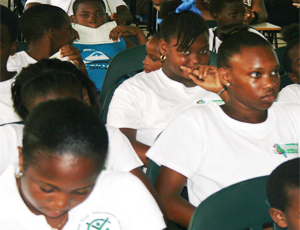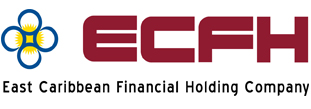News Room
News/Press Releases

ECFH, the OECS’s largest financial Group, continues play its part in local and global efforts of creating a cleaner and healthier environment for today and generations to come.
The Group which is also the parent company for Bank of Saint Lucia recently supported The Caribbean Youth Environment Network (CYEN) two week Green Future Summer Camp which officially came to close on August 14th 2013 during a special ceremony.
The purpose of the summer camp was to bring the message of environmental stewardship to the younger generation – targeting youth between 9 and 15 years old.
The activities involved environmental tours, eco-friendly craft activities, lectures from resource persons and eco-games.
At the end of the camp, each of the participants committed to make small changes in their daily lives and be to environmental advocates at home, in school and in their communities.
The ECFH Group extended kudos to the coordinators, facilitators and participants for a successful summer programme.
Assistant Manager - Corporate Communications, Omari Frederick stated that, “Support of the CYEN Green Future Summer Camp is in keeping with ECFH’s Greedy for Green CSR Programme. Greedy for Green articulates our desire to contribute to the improvement of the quality of life of all Saint Lucians; and critical to this objective is the protection and conservation of our environment and limited natural resources. Our young people are key to shaping a greener and more sustainable future.”
The CYEN’s overall mission is to improve the quality of life of Caribbean young people by facilitating their personal development and promoting their full involvement in all matters pertaining to the environment and sustainable development.
At the ceremony, ECFH previewed is plans for its new Youth Environment Programme which targets secondary school students across the island. Under the UN World Environment Day Theme, “Think. Eat. Save.”- This programme will challenge student participants to find creative solutions to reduce our “foodprint” and its impact on our environment and economy.
Back







